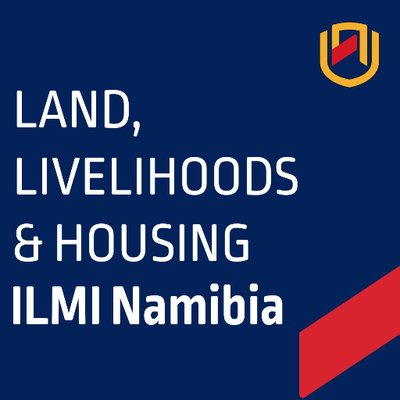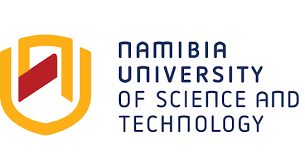Location
The Integrated Land Management Institute is a centre of the Faculty of Natural Resources and Spatial Sciences (FNRSS) at the Namibia University of Science and Technology (NUST) committed to develop reputable and multidisciplinary research and public outreach activities in the field of land, administration, property, architecture and spatial planning.
It was originally established 2006 and conceived as an arm of the Department of Land Management in order to undertake applied research, consulting services, and training courses.
As from 2015, activities at ILMI will be guided by the Land, Livelihoods and Housing programme, while remaining open to new collaborative research, training, and outreach activities.
ILMI has a space at the Department of Land and Property Sciences (DLPS) and most events currently take place at the Seminar Room of the Department of Architecture and Spatial Planning (DASP). Smaller events and meetings take place at the CLPS House.
The Department of Land and Property Sciences (DLPS) has recently been recognised by the African Union (AU) through the Land Policy Institute (LPI) as a Centre for Excellence in Land Governance for Africa (NUST - NELGA Hub).
Members:
Resources
Displaying 16 - 20 of 26Sustainable Land Governance in Support of the Global Agenda
This paper is work in progress and draws from previous research. The paper supports the public lecture on Sustainable Land Governance in Support of the Global Agenda given at Namibia University of Science and Technology (NUST) on 4 March 2016.
Participatory land delivery processes in Gobabis: the case of Freedom Square.
The project in question refers to the case of 'Freedom Square' in Gobabis, which is a cooperation between the Municipality of Gobabis and the Shack Dwellers Federation of Namibia (SDFN), the Namibia Housing Action Group (NHAG), the Namibia University of Science and Technology (NUST), and other international parties. The project is motivated by an agenda of 'inclusive cities': through close collaboration with existing residents in the area, the process of land delivery is expedited and turned into an exercise of making inhabitants drivers in the improvement of living conditions.
The Case for Adequate Housing for Teachers in Windhoek
The initiative to investigate the housing situation of teachers in Namibia was triggered by teacher
Gertrude Mujoro, who discussed the matter with her fellow colleagues who brought the matter to the
attention of the leadership of the Teachers Union of Namibia (TUN). In 2014 the Trade Union Congress
of Namibia (TUCNA), the umbrella federation that TUN belongs to, developed a document titled
“TUCNA Development Policy Proposals” (TUCNA, 2014), which contains a section on housing. In line
Land Delivery to the Urban Poor. Case study of Lux Development Project Nam/343: Realities, opportunities, possibilities, synergies
The project took place in Katima Mulilo and Rundu during 2007-11. The project consisted of 66 township extensions, and resulted in 18,500 plots developed in a period of 5 years. The project was funded by LUX Development, the cooperation agency from Luxemburg, which poured significant funds to make the project possible. One of the innovation aspects was to do the topographic and cadastral mapping in parallel with the layout and design. This was done by teams consisting of a town planner, a surveyor , and community facilitators selected by the inhabitants of the settlement in question.
Land, livelihoods and housing: Research Programme 2014-2018.
This document provides the focus for an integrated approach to research in the land, livelihoods and housing sectors in Namibia. Its thematic approach seeks to facilitate multi-disciplinary research projects that will reflect the wide range of skills existing in the School of Natural Resources and Spatial Sciences (SNRSS) at the Polytechnic of Namibia (PoN). It is unique in that it has all land related disciplines in one School and is therefore well placed to become a leading research centre.



